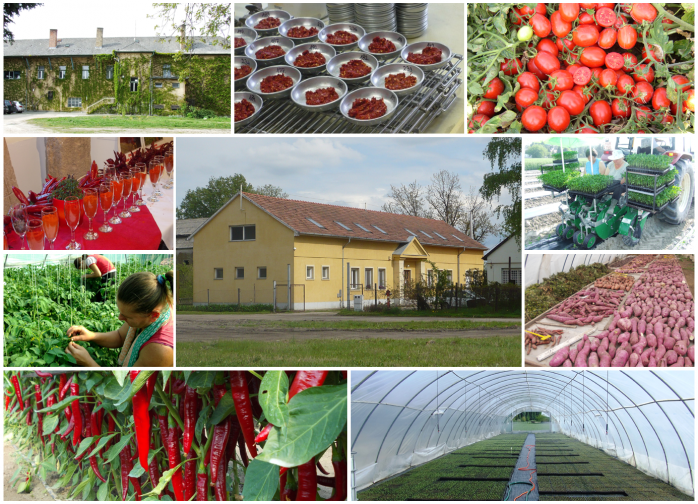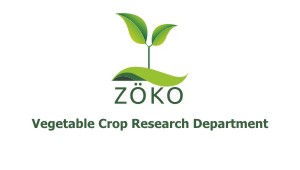
Vegetable Crop Research Department

About the institute
The Vegetable Crop Research Department of National Agricultural Research and Innovation Center (NARIC VCRD) was established on 1st January 2014. with three research stations. As a public benefit R + D organization cooperates with scientific institutions, universities and professional partners. Our main tasks:
- Breeding of resistant spicy pepper, tomato, onion and garlic varieties
- Development of the environment-friendly growing technologies
- Conservation and reproduction of relevant vegetable landraces
- Extension of the results for the growers via publications, forums and open days.
At Kecskemét Research Station tomato and onion breeding are the prosecution of the previous work of ZKI Corporation Kecskemét and Makó Onion Research Station.
Tomato breeding has a long tradition in Kecskemét. At present we are working on development of stable yielding early hybrids with excellent processing parameters. Selection and testing scheme is combined with molecular marker technics provided by NAIK ABC. Combining ability studies, conventional disease resistance tests (Verticillium sp., Fusarium sp., and Pseudomonas tomato), and marker assisted selection to nematodes and other diseases, as well as Brix values are the main points in the selection of proper hybrids to insert to the ripening row.
The Makói onion varieties are essential parts of the Hungarian traditional culinary, important export products and well known Hungarian trade-names. These varieties are characterized by high dry matter and aromatic compounds with long storability. The markets are interested in high quality Makói onion, however, the rentability of traditional two-year growing technology (growing from sets) and relatively low yield resulted in reduction of Makói type onion production. The aim of our breeding project to develop Makói type hybrids with higher yield keeping the spicy flavour with reasonable dry matter and storability to improve the traditional production.
Hybrid breeding require modern tools to accelerate the time consuming conventional selection. Molecular markers provided by NARIC ABC are efficient in identification of male sterile and maintainer lines. In C line selection the yield and quality improvement is most important.
Government supported red pepper research started with Kalocsa Paprika and Chemical Research Station, established in 1917 and Szeged Paprika and Chemical Research Station, set up in 1927 to make chemical analysis, support and guarantee high quality milled paprika products.
Research Stations of Kalocsa and Szeged are successors of the former Spicy Pepper Research and Development Public Benefit Company. The two stations bred 17 open pollinated (OP) and 4 hybrid varieties. The new early OPs and medium early hybrids provide high productivity with high pigment content with resistance to Xanthomonas bacteria. Due to this successful work home production is based on Hungarian-bred varieties.
In our new projects the selection for further disease resistances involving DH lines and new sources of resistances and improvement of intensive technologies in the field and under plastic are targeted. Main activities: screening genetic resources, elaboration of sustainable, fertigation and irrigation technologies, harvesting and curing technologies. Laboratory tests of quality parameters.

